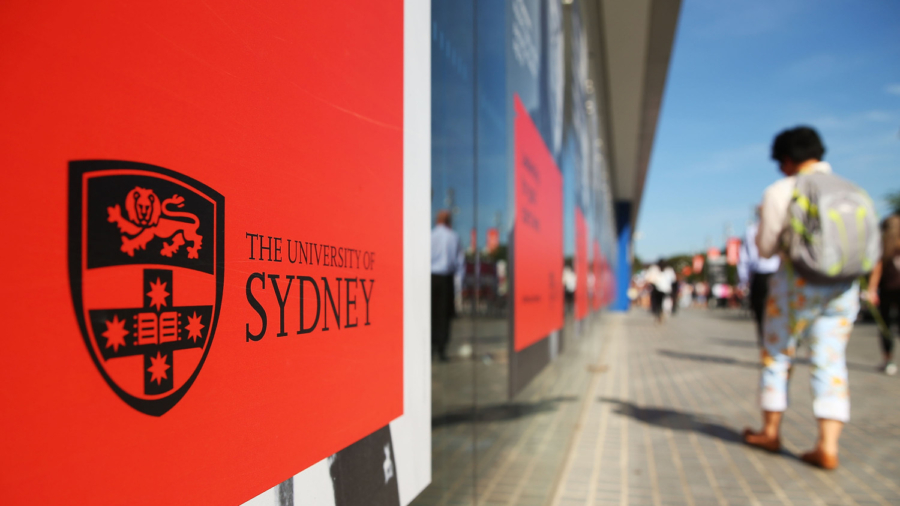A number of Chinese international students studying in Australian universities have tried to shame their lecturers for their reference to Taiwan or Hong Kong in their teaching. As a result, some staff have been forced to apologise for inadvertently offending the students.
This has lead to concerns about whether Australian universities have compromised academic freedom while being too eager to protect their relationships with the Chinese Communist Party (CCP).
In August 2017, an IT lecturer at the University of Sydney, Dr. Khimji Vaghjiani, said he downloaded a map for “discussing characteristics of IT entrepreneurs around the world,” as reported by SBS News.
But a Chinese consulate-affiliated student group at the University of Sydney took offense and denounced the lecturer in a WeChat group for using an “intolerable” map that depicted contested border regions, including Arunachal Pradesh, Aksai Chin, and Ladakh, as India-controlled territories.
The lecturer later expressed regret over his “genuine mistake” and apologized for “any offence this may have caused” in a statement made through the university. The map has since been swapped for a version approved by the Chinese regime.
After Vaghjiani’s ‘confession,’ CCP-owned newspaper Global Times bolstered the regime’s territory claims by publishing the statement: “The China-India border dispute broke out in Australia, and China won!”
Chinese Student Groups at Forefront of Controversies
In the same month, a University of Newcastle lecturer, Nimay Kalyani, was targeted by Chinese students for using teaching material that referred to Taiwan and Hong Kong as separate from China.
China regards Taiwan as a renegade province that will one day be reunited with the mainland, while Hong Kong was returned to Chinese sovereignty by the British in 1997 under the “one country, two systems” principle that guaranteed separate governance.
Kalyani was recorded in class as he was discussing the matter of Taiwan and Hong Kong with his Chinese students. The video recording was subsequently published by a local pro-CCP Chinese media, which denounced the lecturer in an article, also publishing his photo and email address.
An angered Chinese student can be heard in the video asking: “Why you always [sic] keep saying that?”
Kalyani asked: “Saying what?”
“In this class, you’ve said twice, Taiwan is a country,” the student said.
“In my understanding, Taiwan is a separate country,” Kalyani responded.
The student continues to argue with the lecturer, who simply responded that “it’s part of the course,” adding that he would encourage the student to “learn to accept it.”
The university was later approached by the Chinese consulate on the matter, reported The Australian.
In May 2017, Chinese students complained that Monash University lecturer Dr. Aaron Wijeratne was being discriminatory in his class after he referenced a widely-used human resource management textbook that read: “There is a common saying in China that Chinese officials only speak the truth when … they are drunk or careless,” reported The Australian.
Wijeratne was subsequently suspended. Monash said it would scrap the textbook and never use texts by the same author, Raymond J. Stone, in its curriculum again, reported the newspaper.
Wijeratne resigned from the university following the furor.
Covert Operations
According to Jonathan Benney, a lecturer of Chinese Studies at Monash University, “the chain of command is clear.” It goes “from the PRC government to consulates to student organisations to students,” he wrote in The Conversation.
Former Chinese diplomat, Chen Yonglin, who defected from Sydney’s Chinese consulate in 2005 and was once behind many of the CCP’s spy operations in Australia, previously stated that Chinese diplomats fund Chinese student associations to exert the Party’s influence in universities.
Moreover, Chen claims that the students are often used by the consulate to collect information on people and “infiltrate dissident groups especially [relating to] Tibet and Falun Gong,” he told the Sydney Morning Herald.
Falun Gong, a meditation discipline based on moral principles of truthfulness, compassion, and tolerance, was introduced in China in 1992, eventually growing to 100 million adherents by 1999, according to official estimates. Believing the practice’s popularity to be a threat to Communist ideology, then-Communist Party leader Jiang Zemin launched a nationwide persecution in an effort to eradicate Falun Gong. The state’s security apparatus arrested and detained practitioners, while its propaganda apparatus launched a misinformation campaign to discredit the peaceful practice. Overseas Chinese student groups have been notorious for carrying out such hate propaganda among Chinese communities abroad.
Toe the Party Line or Suffer the Consequences
International Chinese students have also been the victims of the Chinese regime’s spy operations abroad.
A Queensland University of Technology student, Tony Chang, said his parents who live in northeast China have been threatened and monitored by state security agents due to his anti-CCP activism in Australia, reported ABC News.
“[The agents] pressed the point that my parents must ask me to stop what I am taking part in and keep a low profile,” Chang told the ABC.
In March this year, scholars in fields related to China and the Chinese diaspora explained the CCP influence operations they have witnessed in an open letter to Australia’s parliamentary review on national security.
They wrote about “direct and indirect control of Chinese-language media in Australia,” “the establishment of Chinese government-backed organizations on university campuses used for monitoring Chinese students,” and “interference in academic freedom.”
On April 26, Clive Hamilton, who serves as the vice-chancellor’s chair in public ethics at Charles Sturt University, testified before a United States congressional committee: “It is no exaggeration to say that Australian universities now tiptoe over eggshells to avoid any action that may offend party bosses in China.”
Watch Professor Clive Hamilton's testimony at hearing "Digital Authoritarianism & the Global Threat to Free Speech" https://t.co/E5KcfXakPX via @YouTube
— China Commission (@CECCgov) April 27, 2018
Hamilton’s recently published book ‘Silent Invasion: China’s Influence in Australia’ thoroughly exposes the CCP’s influence in all aspects of Australian society, including universities.
“Australian universities are now so closely tied into monetary flows and links with China that they have forgotten the founding principles of the western university,” Hamilton warned.

